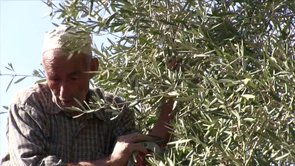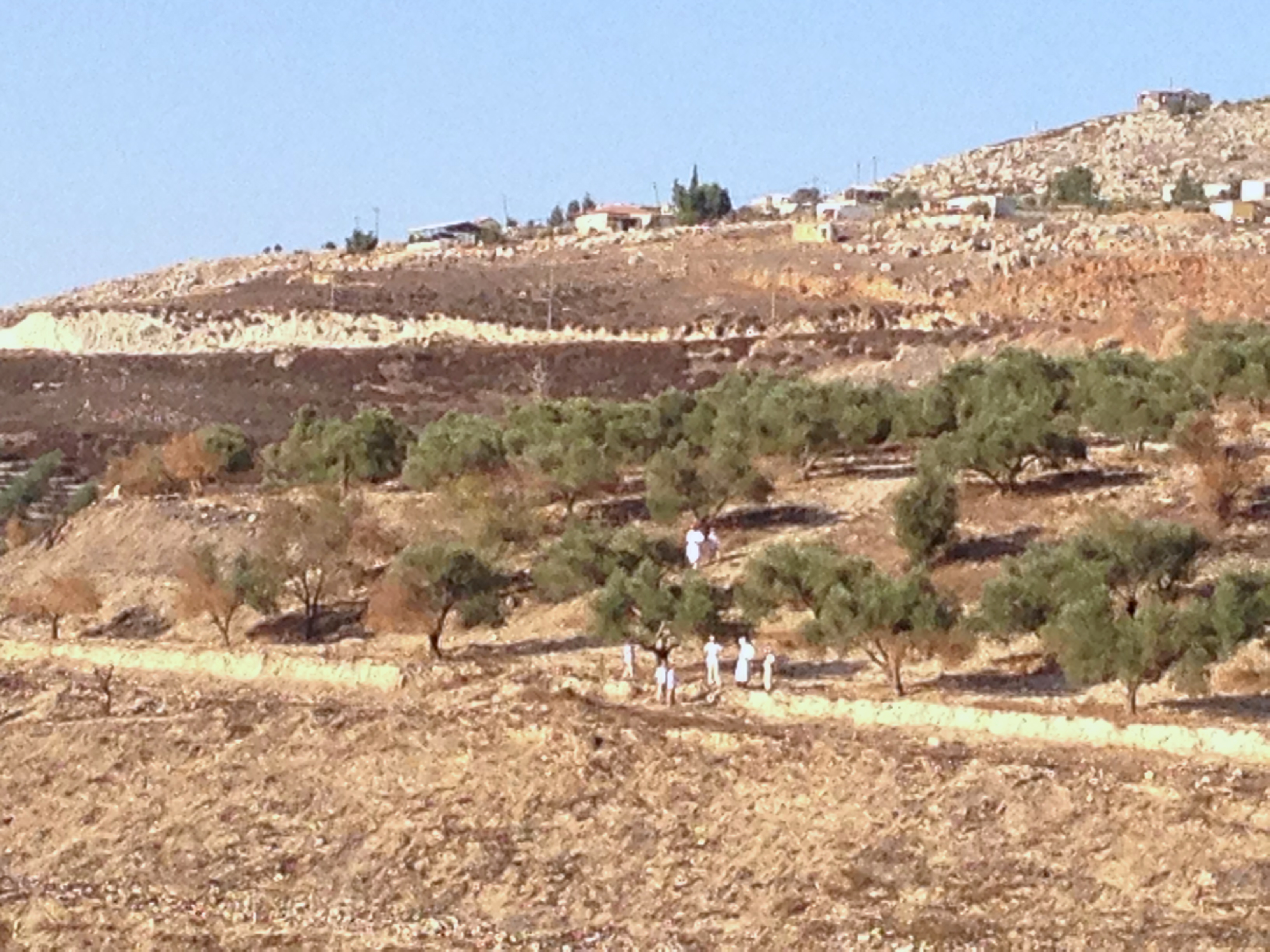Tag: Kafr Qalil
-
Settler intimidation in Kafr Qalil
24th October 2013 | International Solidarity Movement, Nablus Team | Kafr Qalil, Occupied Palestine Yesterday, Wednesday the 23rd October, a Palestinian farmer and his family were olive picking in Kafr Qalil together with international activists. Close to the fields is the illegal settlement of Bracha and one settler aggressively intimidated the farmer until he left the area.…
-
Illegal Israeli settlers attack Palestinian farmer attempting to harvest almonds
14th September 2013 | International Solidarity Movement, Nablus Team | Kafr Qalil, Occupied West Bank Late Friday night we received a call to accompany a farmer to harvest almonds early the following morning in Kafr Qalil, a village south of Nablus. This is a completely normal activity, harvesting crops when they are ripe and ready-to-pick;…
-
“No-one can explain to me why”
22 May 2012 | International Solidarity Movement, Nablus Team | Kafr Qalil, Occupied Palestine The Israeli army invaded seven family homes in the village of Kafr Qalil, south of Nablus, between 1am and 2am on 20th May. They trashed the properties and people’s possessions and stayed in them for several hours apiece. Lastly, they arrested…


